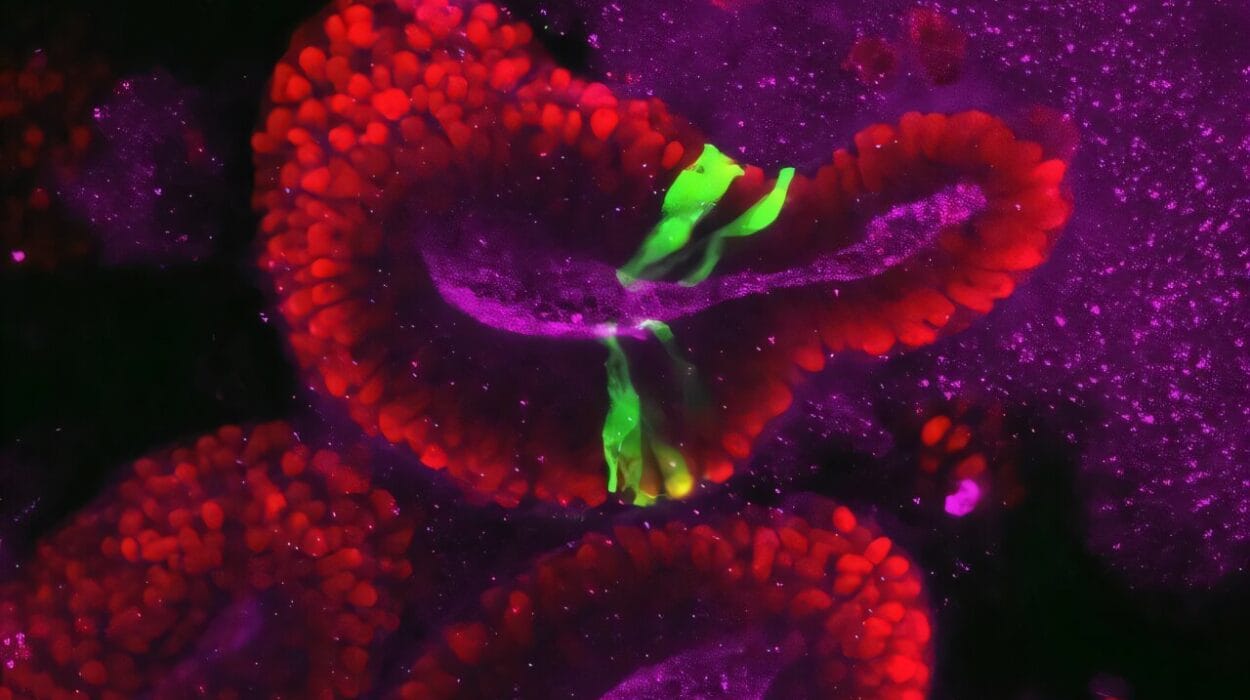Menstruation is often described as the body’s monthly report card—a visible, tangible reflection of what’s happening beneath the surface. For many women, it arrives with clockwork precision, bringing along cramps, cravings, and the comfort of knowing that the reproductive system is operating as expected. So when a period suddenly goes MIA, it can cause confusion, concern, and a flood of questions. Is it stress? Pregnancy? A sign of something more serious?
The absence of a period, medically termed amenorrhea, isn’t always a reason to panic, but it’s never something to ignore. Like a warning light on your car’s dashboard, it’s a message that something in the body’s finely tuned system has changed. Whether it’s a temporary hiccup or a deeper hormonal shift, understanding the reasons behind a sudden pause in your cycle can empower you to take charge of your health and respond with clarity instead of worry.
Hormones: The Conductors Behind the Cycle
To understand why your period might disappear, you first have to understand what keeps it running. At the center of menstrual health is an intricate hormonal symphony conducted by the brain, ovaries, and endocrine system. The hypothalamus in the brain sends signals to the pituitary gland, which in turn nudges the ovaries to produce estrogen and progesterone. These two hormones are responsible for preparing the uterine lining each month for a potential pregnancy.
If pregnancy doesn’t occur, hormone levels drop, triggering menstruation—the shedding of the uterine lining. If any part of this hormonal loop is disrupted, the cycle can stall. The body may choose to pause menstruation as a protective mechanism, conserving energy and redirecting resources when something is off balance. Sometimes, the disruption is subtle. Other times, it’s loud and clear. Either way, a missing period is often your body’s way of raising a hand and saying, “Pay attention.”
Stress and the Mind-Body Connection
One of the most underestimated culprits behind a suddenly absent period is stress. While we often think of stress as an emotional or mental experience, its effects are deeply physical. The body doesn’t distinguish between the stress of running from a lion and the stress of working a 70-hour week. When cortisol—the primary stress hormone—spikes repeatedly, it can interfere with the hypothalamus and suppress the reproductive hormones needed to trigger ovulation and menstruation.
High stress can lead to what’s known as hypothalamic amenorrhea, where the brain essentially tells the ovaries to stand down. This can happen even in women who are otherwise healthy and not experiencing major life changes. Emotional turmoil, chronic anxiety, grief, trauma, or even the strain of perfectionism can lead to a hormonal cascade that puts periods on hold. It’s the body’s ancient survival tactic: in times of perceived danger, reproduction is not a priority.
What makes this particularly tricky is that stress-related amenorrhea doesn’t always come with other noticeable symptoms. You might still feel “functional”—going to work, working out, managing daily life—yet underneath it all, your body is silently pumping the brakes on your cycle.
Pregnancy: The Most Obvious Explanation
Of course, the most common and biologically intended reason for a period to stop is pregnancy. When a fertilized egg implants in the uterus, the body produces human chorionic gonadotropin (hCG), a hormone that maintains the uterine lining and prevents menstruation. If your period stops unexpectedly and pregnancy is even a remote possibility, taking a test should be the first step. Early symptoms can include fatigue, nausea, breast tenderness, and frequent urination, but every woman’s experience is different.
It’s worth noting that even if you’re using birth control or tracking ovulation, there’s still a chance for conception if you’ve had unprotected sex. Some women also experience implantation bleeding and mistake it for a light period, which can lead to confusion about timing. A missed period might be the first whisper of a major life change. In such cases, the disappearance of your cycle isn’t a problem—it’s a sign of a new chapter.
Weight Changes and Energy Deficiency
Your menstrual cycle is closely tied to body fat and energy availability. If you’ve recently lost a significant amount of weight, changed your diet dramatically, or begun an intense exercise regimen, your period might decide to sit things out for a while. This is especially common among athletes, dancers, and women in fitness communities where leanness is often rewarded, but it can happen to anyone who suddenly burns more calories than they consume.
The body needs a certain threshold of fat to support hormone production. When that reserve dips too low, estrogen levels drop, and ovulation can stop. This is part of what’s known as the female athlete triad: disordered eating (even unintentionally), low bone density, and amenorrhea. You don’t need to have full-blown anorexia to experience this. Even subtle energy imbalances can tip the hormonal scales, particularly if your body perceives the change as a threat to survival.
Gaining weight or restoring energy balance usually helps the cycle resume, but it’s not always immediate. The body takes time to feel safe again. In the meantime, your missing period might be telling you to nourish more, rest better, and slow down.
Polycystic Ovary Syndrome (PCOS) and Irregular Cycles
If your period doesn’t just vanish but becomes erratic or unpredictable, it might be pointing to an underlying condition like Polycystic Ovary Syndrome (PCOS). PCOS is one of the most common hormonal disorders among women of reproductive age and is characterized by elevated levels of androgens (male hormones), irregular ovulation, and often multiple small follicles on the ovaries.
Not all women with PCOS have cysts, and not all experience the same symptoms. Some may struggle with acne, hair thinning, or weight gain, while others simply notice that their periods are spaced out or absent for months at a time. The underlying issue is often insulin resistance, which disrupts the hormonal feedback loop between the ovaries and the brain.
PCOS is a chronic condition but is highly manageable with lifestyle changes, medications, and hormonal support. Identifying it early can help you take steps to regulate your cycle, protect your fertility, and reduce the risk of long-term health issues like diabetes and cardiovascular disease.
Thyroid Troubles and Metabolic Signals
The thyroid gland, a small butterfly-shaped organ in your neck, plays a surprisingly large role in your menstrual health. It helps regulate your metabolism, energy levels, and yes—your period. When thyroid function goes awry, menstrual irregularities often follow.
An underactive thyroid (hypothyroidism) can lead to heavy, prolonged periods or missed periods altogether, along with symptoms like fatigue, weight gain, depression, and cold sensitivity. An overactive thyroid (hyperthyroidism), on the other hand, may cause lighter periods, more frequent cycles, or amenorrhea, often accompanied by symptoms like anxiety, weight loss, and rapid heartbeat.
Because thyroid disorders are relatively common and can be subtle in presentation, they’re often overlooked in early stages. A simple blood test measuring TSH (thyroid-stimulating hormone) and free T4 can provide valuable insights into whether your thyroid could be the root cause of your disappearing cycle.
Perimenopause: The Long, Slow Transition
If you’re in your late 30s or 40s, a vanishing period might be the first sign that you’re entering perimenopause—the transitional years leading up to menopause. Unlike the abruptness of amenorrhea caused by stress or illness, perimenopause is more of a slow and sometimes chaotic evolution.
During this time, estrogen and progesterone production becomes erratic, leading to skipped periods, shorter or longer cycles, mood changes, and changes in menstrual flow. One month might bring a heavy, painful period. The next might bring nothing at all. This rollercoaster is normal, albeit frustrating.
Perimenopause can last anywhere from a few years to over a decade before periods cease completely (menopause is officially defined as 12 consecutive months without menstruation). The key is recognizing that this phase isn’t just about fertility winding down—it’s a total body shift. Being aware of what’s happening allows you to work with your body instead of feeling blindsided.
Birth Control and Medical Interventions
Hormonal birth control can also be responsible for your period going on hiatus. Depending on the type—pills, patches, injections, IUDs, or implants—your body might stop ovulating or build up less of a uterine lining, leading to lighter or absent periods. For many women, this is a welcome change. However, it can also make it tricky to know whether something is amiss.
Certain methods, like the Depo-Provera shot or hormonal IUDs, are especially known for causing amenorrhea. This is usually not dangerous, but it’s important to distinguish between medically induced amenorrhea and that caused by an underlying condition. If you’ve recently stopped using birth control, your body may take several months to resume its natural rhythm. During this time, skipped periods can be frustrating but are often part of the adjustment.
Additionally, certain medications unrelated to contraception—such as antidepressants, chemotherapy drugs, or antipsychotics—can affect your cycle. Medical treatments that impact the hypothalamus, pituitary gland, or ovaries can temporarily or permanently disrupt menstruation.
Chronic Illness, Infection, and Hidden Disorders
Beyond hormones, your period can be affected by illnesses that strain the body or its immune system. Conditions such as diabetes, celiac disease, lupus, and even severe infections can interfere with hormonal signals. Chronic inflammation and immune dysfunction can suppress ovulation, especially if the body perceives itself to be under siege.
Sometimes, periods stop not because of the illness itself but because of how the body is trying to cope. Energy is diverted away from reproductive functions and toward healing or defense. Even something like a high fever, intense physical recovery, or surgery can cause a temporary shutdown of your menstrual cycle.
It’s also possible, though less common, for structural issues in the reproductive organs to cause missed periods. Uterine scarring (Asherman’s syndrome), tumors in the pituitary gland, or congenital abnormalities might prevent menstruation altogether. These cases are rare but underline the importance of medical evaluation when your cycle goes missing for months without a clear cause.
What to Do When Your Period Disappears
When your period vanishes without warning, don’t panic—but don’t ignore it either. The first step is to rule out pregnancy, especially if you’ve been sexually active. From there, tracking other symptoms—changes in weight, mood, hair, skin, energy, or appetite—can offer clues. Journaling your cycle, lifestyle, and any recent changes gives your healthcare provider valuable information.
A medical workup typically includes a physical exam, a pelvic ultrasound, and blood tests to check hormone levels. Depending on the results, your doctor might suggest lifestyle adjustments, medications, or further investigations.
Sometimes, the fix is as simple as eating more, stressing less, or switching medications. Other times, it requires more in-depth management, especially in conditions like PCOS, thyroid disease, or early menopause. Regardless of the cause, your period is a vital sign worth respecting. It’s not just a monthly inconvenience—it’s a powerful barometer of your body’s health.
Listening to the Silence
Your menstrual cycle is one of the most consistent physiological patterns your body maintains. When it suddenly stops, it’s not just a silence—it’s a message. Whether it’s your body asking for rest, hinting at an imbalance, or announcing a new phase of life, tuning in to that silence is essential.
Periods are often treated as nuisances to be ignored or managed, but in truth, they’re one of the most telling reflections of your well-being. Paying attention to your cycle is a form of self-respect. It’s a way of listening to your body and honoring what it’s trying to tell you.
Because when the rhythm skips a beat, it’s not random—it’s a sign worth understanding.






